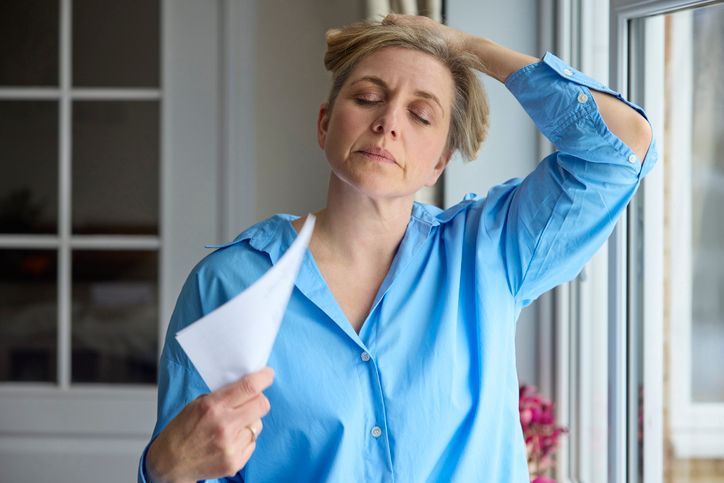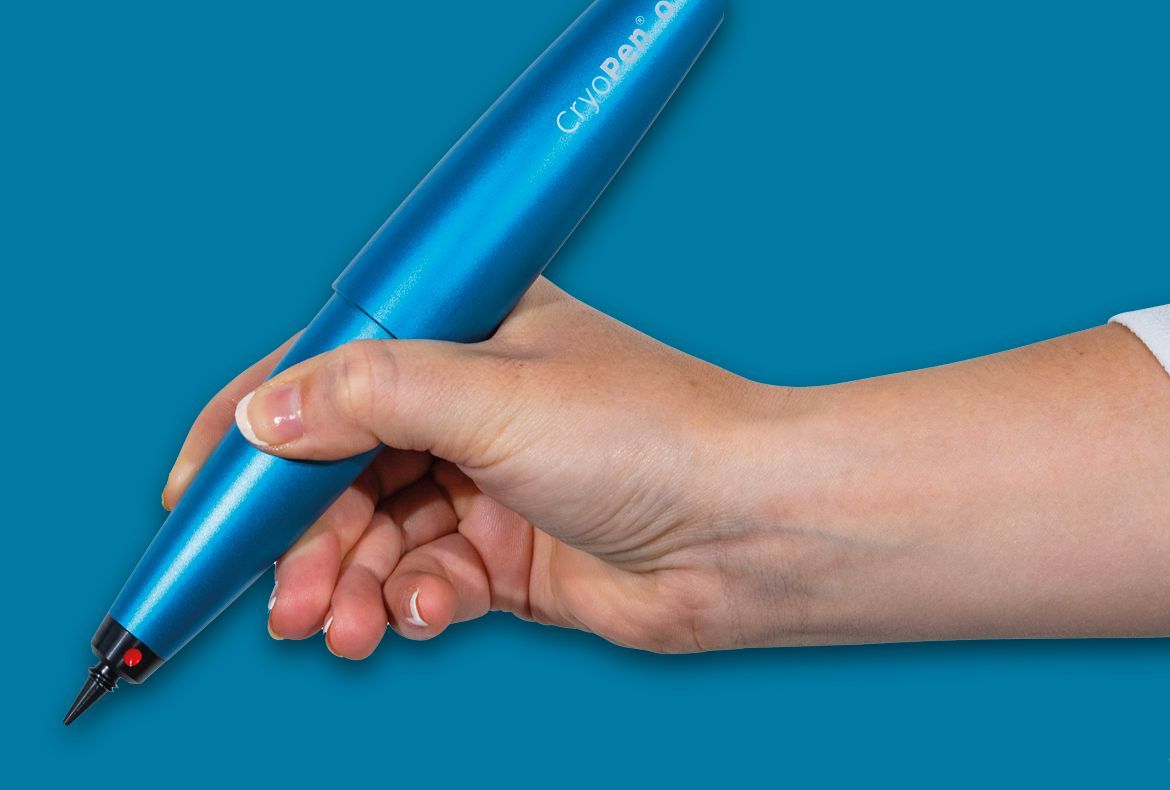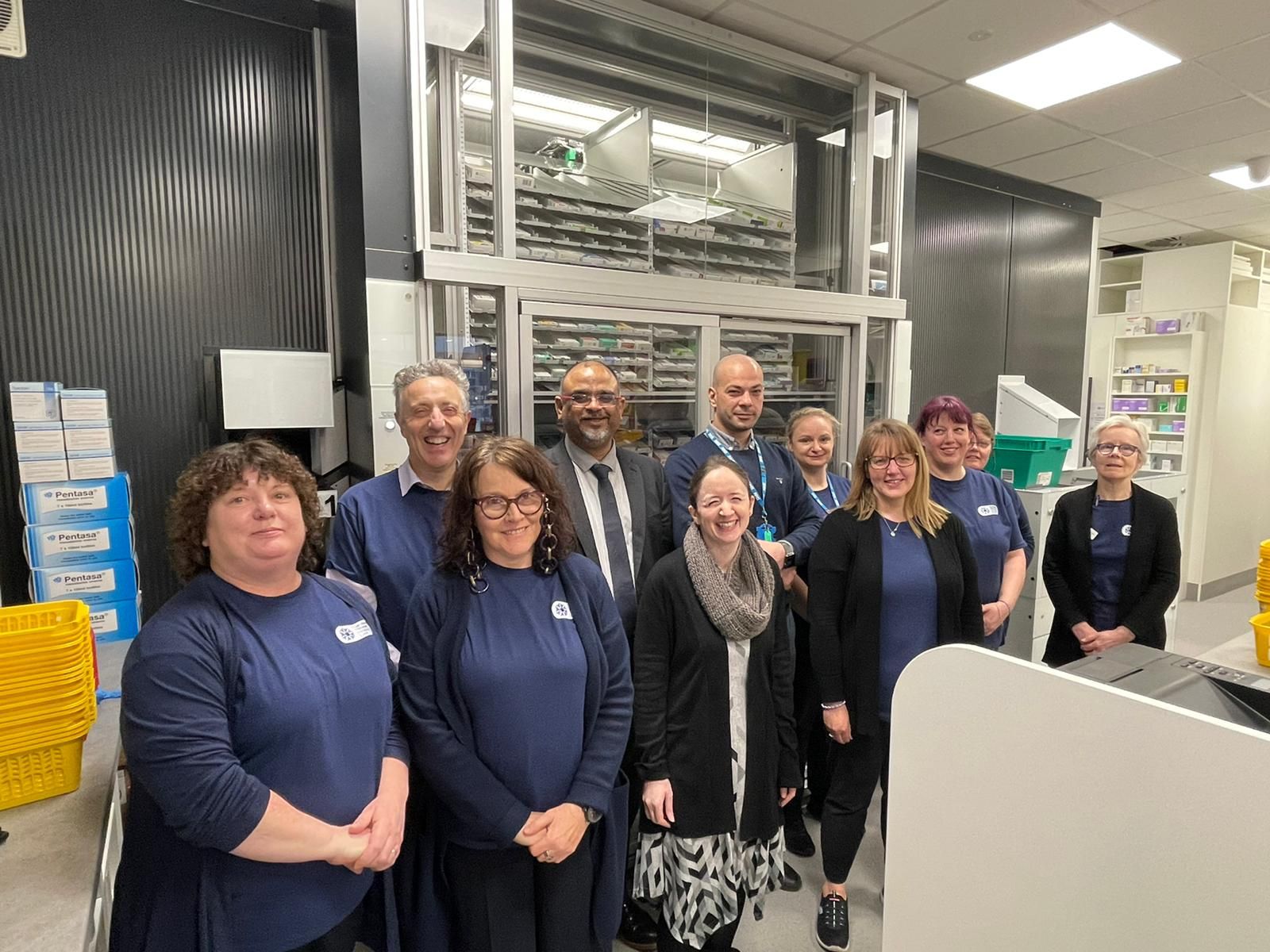Pharmacy First – Shingles
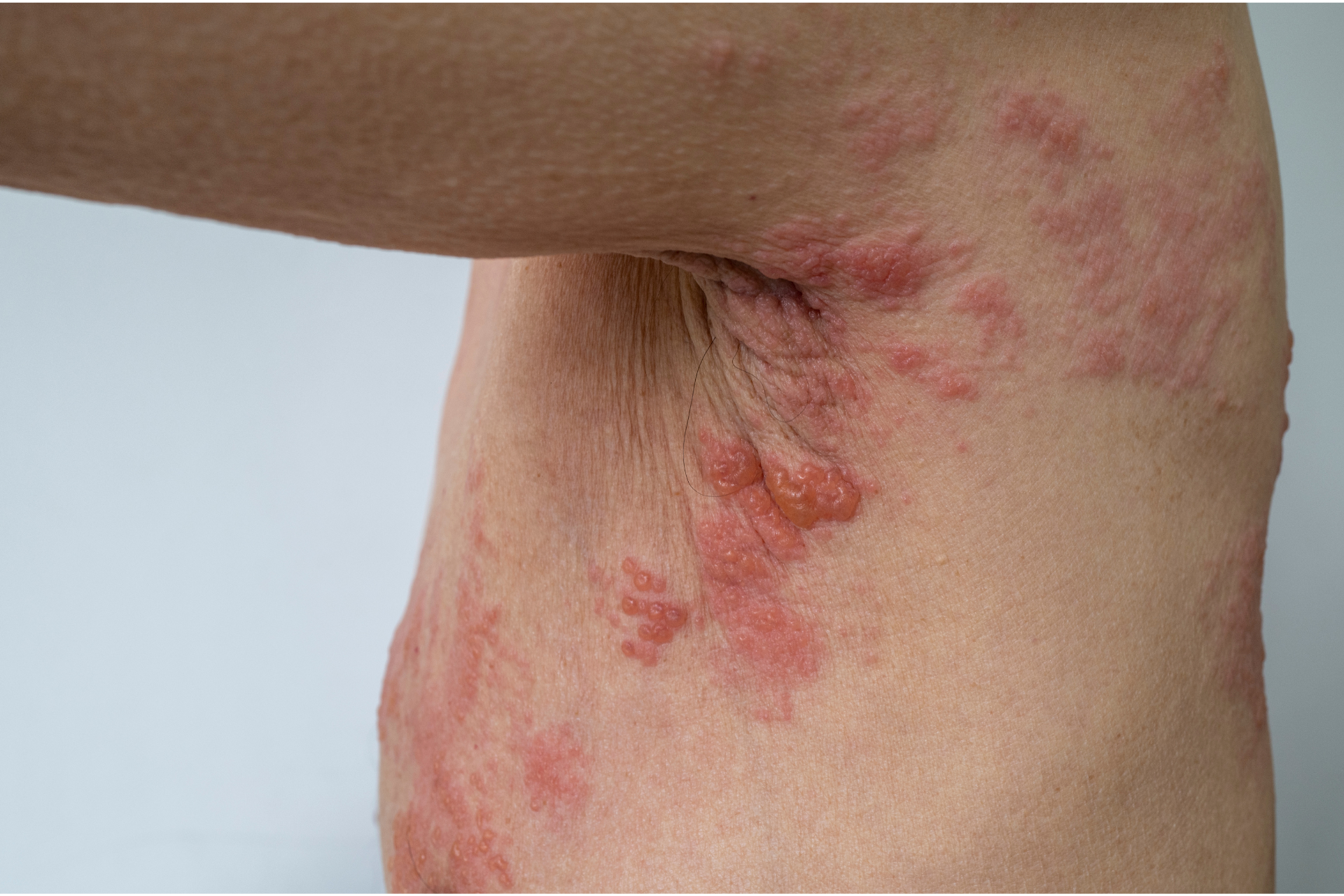
Shingles are a common condition that is covered (for free) under the NHS “Pharmacy First” service. It’s important to know basic information about the condition so that you can appropriately seek treatment for any health-related concerns. In this educational blog, we will discuss and explain what shingles are and how you can spot them.
Shingles is a viral infection caused by the same virus that causes chickenpox. Despite this worrying coincidence, shingles only occur in people who have had chickenpox. Hence you cannot give another person shingles but you are still contagious so you can still spread chickenpox. So it's important to be cautious and not spread chickenpox to someone who has fragile health and has not had chickenpox or a chickenpox vaccination. Shingles will appear as a strip of blisters on the body, typically located on the chest or face.
Symptoms of Shingles
Symptoms of shingles usually include:
- A blistering rash which can appear as a band or strip on the body
- Fever
- Headache
- Fatigue
- Light sensitivity
- Affected vision (if the blisters occur on the face)
- Burning / itchy skin
These are some of the most common symptoms of shingles, which can be very uncomfortable to deal with, particularly the rash which can be particularly uncomfortable.
The shingles rash can persist for 2 – 4 weeks, long enough to become a nuisance. The rash will go through several stages as you move along the road to recovery. Initially, a rash will appear without blisters. This will then develop over a couple of days into fluid-filled blisters that can be filled with blood and can “pop”. Although this may be worrying this is a normal stage of shingles. After 7 – 10 days these blisters will dry out and scab over. Once the blisters dry out, they reach the final stage of healing where they will heal and fall off, of their own accord. This final stage usually takes 2 – 4 weeks.
Treatment for shingles:
As we briefly mentioned above, one of the most effective and newly available ways to treat shingles is to use the Pharmacy First service. You can be clinically diagnosed of shingles by a qualified pharmacist and provided with appropriate treatment for the condition.
If you are interested and want to book an appointment, click here:
Medication is usually given to manage symptoms of shingles. A GP or pharmacist might prescribe:
- Antiviral medication
- Over-the-counter painkillers
- Topical creams or ointments
- Antidepressants or Anticonvulsants
- Corticosteroids
NB: anti-viral medication is available under the Pharmacy First scheme.
Antiviral medication would usually be prescribed within 72 hours of symptoms first appearing and this type of treatment can help shorten the length of the outbreak, thus reducing the overall length of time to recover. Antiviral medication can be used outside the initial 72 hours of symptoms occurring if your health practitioner thinks it will be beneficial. This is why you should always consult with your pharmacist or GP if you believe you have shingles.
Over-the-counter painkillers this treatment option is used to manage symptoms of shingles, this condition can be painful and as such, your health practitioner might give you over-the-counter medication, or prescription-strength painkillers if deemed necessary when pain is severe.
Topical creams or ointments will be prescribed when itching or discomfort occurs around the site of the rash. This type of treatment can provide significant relief to patients suffering from this condition. Also, an easy straightforward treatment to use, as it can be applied directly to the affected area.
Antidepressants & Anticonvulsants though seemingly unusual antidepressants & anticonvulsants can be prescribed for shingles to help manage the pain associated with nerves. Usually only prescribed once the blisters have healed but the pain persists, this is a rare case when it's best to consult with a GP who will advise the next actions to determine whether this is a suitable treatment.
Corticosteroids, there are some cases where corticosteroids may be used to treat shingles. However, this type of treatment is somewhat controversial and should be carefully considered on an individual basis before being used. Corticosteroid is a steroid-based treatment. Where evidence suggests it can have side effects that affect the immune system, thus making it harder to recover from shingles overall. In addition to this, it can cause other side effects such as osteoporosis. Due to these reasons typically, you will not be prescribed this option unless you have a severe case of shingles.
Complications of shingles?
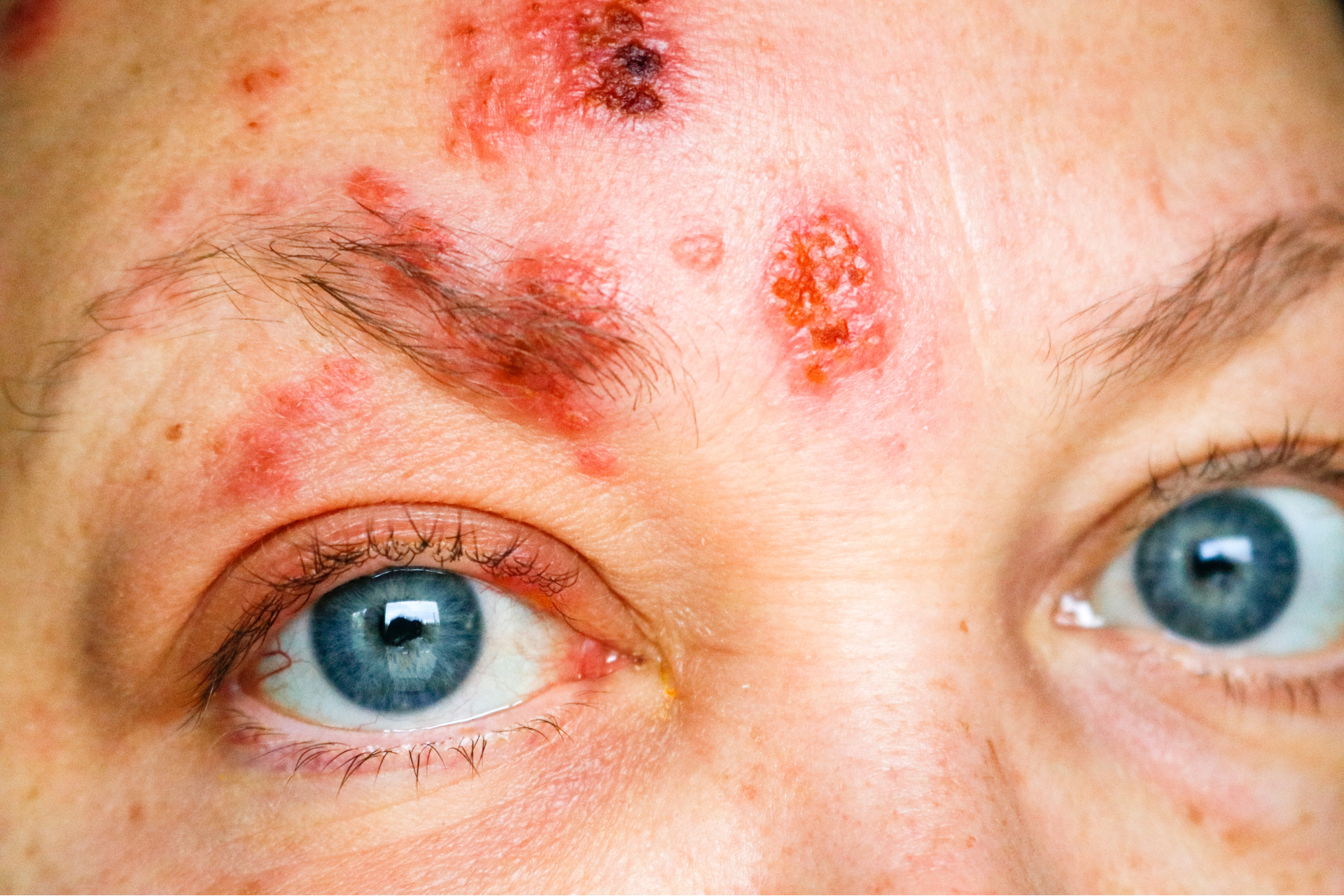
Shingles is normally a relatively minor condition that will resolve after a few weeks. However, some cases of shingles can cause complications:
Rashes can become infected, which may need to be treated with antibiotics. Shingles can leave scarring on the affected skin. Eye problems: if shingles are located around your eyes, they may impair your eyesight. In extremely rare cases you could develop Ramsay Hunt syndrome, which affects the nerves in your face, weakening them and potentially affecting hearing. The best way to avoid any complications of shingles is to seek treatment as soon as possible. This is why if you do notice any symptoms of shingles book an appointment with a pharmacist through Pharmacy First or book an appointment with a GP.
Who is at Most Risk?
There are two main risk factors to consider regarding shingles: firstly, anyone over the age of 50 is at a higher risk of developing shingles. This is due to our immune system which weakens as we age. This is also the second major risk factor. Weakened immune system: if you are on medication that might affect your immune system like corticosteroids or chemotherapy etc you are at higher risk of developing shingles. Autoimmune diseases can also weaken your immune system making you vulnerable to shingles, There are many and varied reasons as to why someone’s immune system may be weaker. If this is the case for you, be sure to be aware of and spot the signs of shingles early so that you can have it treated swiftly.
How can NHS Pharmacy First help me?
NHS Pharmacy First can help you with Shingles. Patients can now seek FREE NHS treatment and advice directly from their local community pharmacy. (Letchworth Pharmacy is a fantastic choice!) No need for a GP appointment. We can provide patients with medication when appropriate to treat any of the seven common conditions that this service covers. NHS Pharmacy First has changed the way the country can access healthcare.
Feel free to book an appointment or simply pop in and speak to our award-winning pharmacy team.
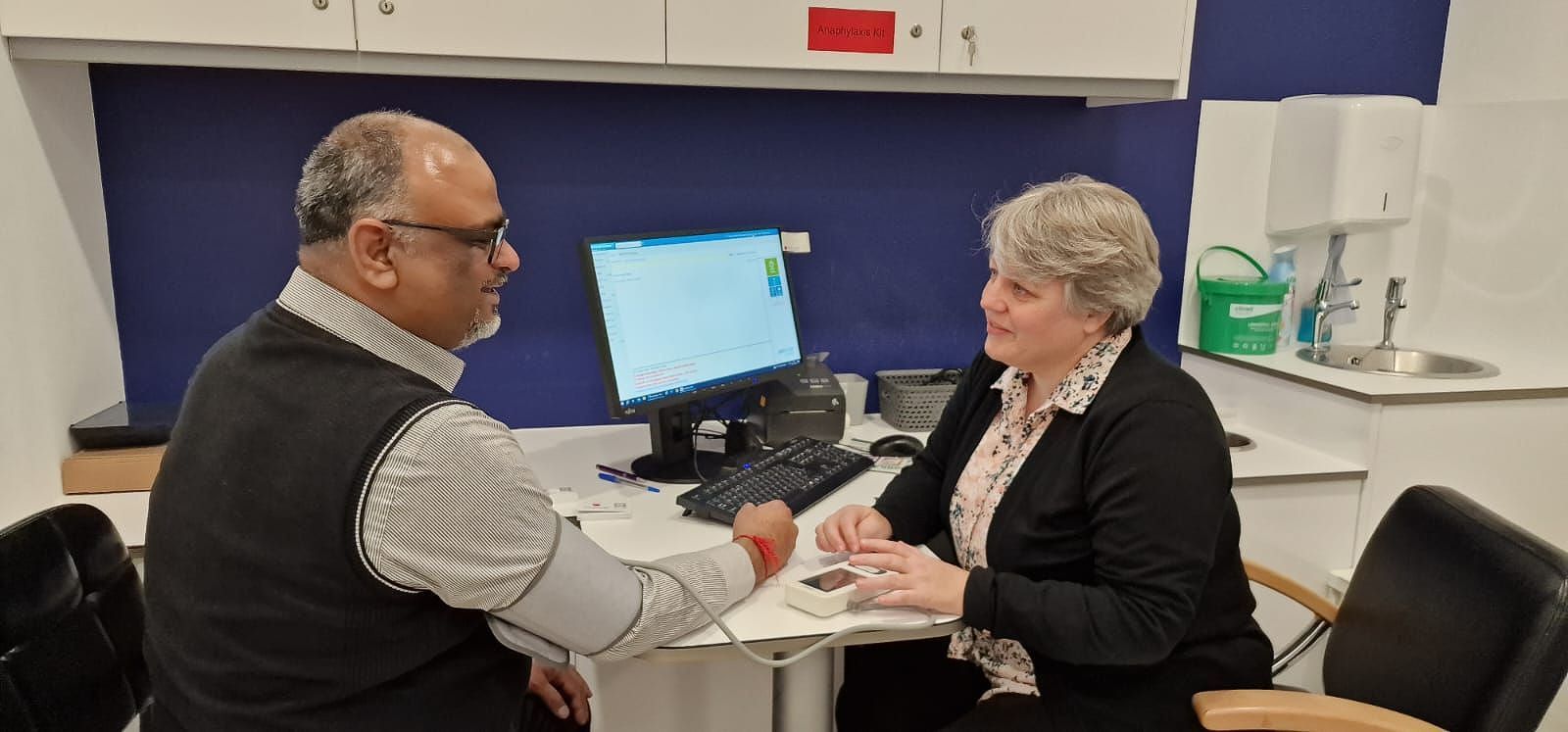
Conclusion
Shingles are generally a mild health condition that presents itself as a rash on the body but will resolve within a few weeks of symptoms occurring. Typically, patients will be prescribed anti-viral medication to treat the cause together with pain medication if needed to help manage the symptoms. However, some cases of shingles can become more severe due to a weakened immune system or other factor. In these cases, our pharmacist, through Pharmacy First would refer you for an urgent appointment with your GP.


